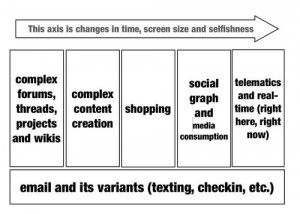
For years, Alison and I have been hearing glowing reports of Tunisia from fellow sailors. We finally sailed there and spent five weeks in Tunisia last summer (August and early September). To our surprise, the local people struck us as the least welcoming of those in the Arab countries we have visited over the last five years (which included Morocco, Syria, Jordan, and Lebanon).
In general, the living conditions in the towns seemed poorer and in some cases more squalid than in the other countries we visited. Syria, for example, is much poorer than Tunisia, with half the per capita GDP, but I did not sense the widespread squalidness in 2008 that we saw in Tunisia in 2010. But, we were only in Syria for a few days and saw only the western part north of Damascus. Tunisian people seemed more religious and mosques seemed more crowded than in the other Arab countries we visited, but I saw nothing suggesting radicalization. In retrospect, it did seem that there were more police in evidence in Tunisia than in the other Arab countries and that people were more fearful of the police, although I did not draw that conclusion at the time. Bottom line: I saw nothing that suggested Tunisia was on the cusp of a political meltdown — I simply did not like the place as much as the other Arab countries I visited — which was quite surprising, given our expectations.
But, as the attached report by Professor Juan Cole shows in Attachment #1 below, there there was a lot of discontent bubbling beneath the surface. Moreover, as opposed to this dumb tourist, our diplomats on the scene appreciated the drivers of the discontent. But, once again, the US government in Washington chose to ignore the warning signs and support a corrupt status quo. And once again our government was blindsided by an inordinate fear of radical Islamism, and in so doing, may have helped to create conditions favoring its spread.
Robert Fisk, in Attachment #2 below, The Brutal Truth About Tunisia, places the American and European propensity to ignore warning signs, and then being blindsided by developments, into a regional perspective. He is, therefore, not sanguine about the future.
———[Attachment #1]———-
New Wikileaks: US Knew Tunisian Gov. Rotten Corrupt, Supported Ben Ali Anyway
Informed Comment 1/16/11 4:35 AM Juan
The Norwegian newspaper Aftenposten released a series of US diplomatic cables from 2006 on massive and pervasive corruption and nepotism in Tunisia and its effect on economic development and social problems. The cables show that the United States government was fully aware of the dangerous and debilitating level of corruption in Tunisia, and its anti-democratic implications.
———[Attachment #2]———-
The brutal truth about Tunisia
Bloodshed, tears, but no democracy. Bloody turmoil won’t necessarily presage the dawn of democracy
By Robert Fisk, Middle East Correspondent
Independent, 17 Jan 2011
The end of the age of dictators in the Arab world? Certainly they are shaking in their boots across the Middle East, the well-heeled sheiks and emirs, and the kings, including one very old one in Saudi Arabia and a young one in Jordan, and presidents – another very old one in Egypt and a young one in Syria – because Tunisia wasn't meant to happen. Food price riots in Algeria, too, and demonstrations against price increases in Amman. Not to mention scores more dead in Tunisia, whose own despot sought refuge in Riyadh – exactly the same city to which a man called Idi Amin once fled.
Read the rest of Attachment #2…
Phi Beta Iota: For some time now, since reading Ambassador Mark Palmer's superb inventory of all the dictators on the planet, we have been concerned about the degree to which the US Government, “in our name,” actively collaborates with and even funds dictators, not just in the Middle East but everywhere. In fact, only two are criticized: North Korea and Cuba. It can fairly be said that US diplomacy and national security are neither strategic nor moral, at the same time that both are arguably not in the best interest of We the People.
2004 Palmer (US) Achieving Universal Democracy by Eliminating All Dictators within the Decade
Review: Breaking the Real Axis of Evil–How to Oust the World’s Last Dictators by 2025
Review: The Warning Solution–Intelligent Analysis in the Age of Information Overload




